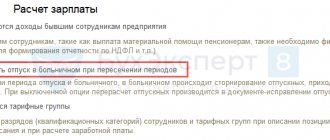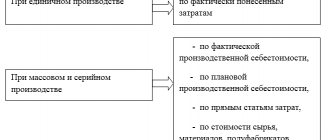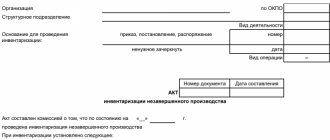Any legal entity operating on the territory of Russia, regardless of subordination and form of ownership in accordance with the Federal Law “On Accounting”, must make an inventory of the cash register, material assets, cash receipts and expenses. Who is obliged to conduct such an audit, with what frequency is it carried out, what stages does it consist of and what final document is drawn up based on its results? Answers to these questions can be obtained after reading our material.
Need an online cash register? We will select a cash register for your business in 5 minutes.
Leave a request and get a consultation.
Why do you need a cash register inventory?
The cash desk may contain not only cash, but also various securities, sanatorium or tourist vouchers, air or train tickets, salary and other statements and BSO.
The check is carried out for:
- identifying possible financial irregularities;
- analysis of the data reflected in the documentation and their comparison with the actual cash detected;
- establishing the correctness of maintaining accounting documents;
- preventing theft or embezzlement of cash.
Subscribe to our channel in Yandex Zen - Online Cashier! Be the first to receive the hottest news and life hacks!
Who checks
For this purpose, a special commission is formed, appointed on the basis of a written order from the head of the legal entity. Instead of an order, the sole decision of the founder of an enterprise or the minutes of a meeting of its owners acquires similar legal force.
The commission, in addition to the director or his deputy, includes:
- chief accountant (his deputy);
- representative of the economic service;
- legal employee department;
- independent auditor (at the discretion of the company management).
Note! The order is issued in any written form, and all members of the commission must participate in the event. Violation of this rule entails the invalidity of the entire process.
What is installed
During the inspection, auditors establish:
- employees with whom an agreement on responsibility for received material assets was concluded;
- the size of the shortage and possible options for reducing it;
- reasons for the excess amounts;
- reasons for the shortage.
After establishing the facts of a violation, the employees of the enterprise who have taken responsibility for storing cash and securities must give detailed written explanations.
Who checks cash?
Any check of an enterprise’s cash register is carried out by its internal structure - a special inventory commission. As a rule, such a commission operates in the organization on a permanent basis.
The composition of the commission and its powers are approved by a special administrative act of the organization’s management.
In addition, the legislation provides for the possibility of creating at the enterprise the so-called working audit commissions, which carry out a significant amount of work to simultaneously verify the assets and liabilities of the company.
The activities of the working audit commission of an economic entity are also regulated by the corresponding order of the head.
The following persons are usually included in the commission for inventory of funds of the cash register of an enterprise:
- management representatives;
- accounting staff;
- employees of the division of the organization that carries out financial control and internal audit;
- independent auditors (specialists of companies providing audit services), if there is a need (expediency) for their involvement;
- employees of the enterprise security department;
- specialists from other departments of the organization (if necessary).
If the specific composition of such a commission is approved by order of management, then the absence of one participant is grounds for rejecting the results of its work.
What is being studied?
Checking the cash register involves monitoring the following aspects of compliance with cash discipline:
- Correct accounting of cash transactions, correct formation of correspondence accounts.
- Legality of transactions performed within one transaction.
- Is the check book kept outside the cash register?
- Are the signatures of the chief accountant and manager present on checks that have not yet been completed?
- Timely and correct execution of cash register papers.
- Timely and complete return (deposit) of the balance of unpaid wages to a bank account.
- Validity and documentary evidence of cash records made.
- Does the date of the transaction match the data in the expense order and the cash register?
- Was the spent cash used for its intended purpose?
- Compliance with the cash balance limit.
- Other points of significant importance.
Order of conduct
Checking cash cash implies a certain sequence of actions provided for by the generally binding procedure and logic of inventory.
Thus, at the beginning of this procedure, all relevant documentation certifying the receipt/expense of cash is provided to the audit commission.
The cashiers of the enterprise, who are entities with financial responsibility, confirm in writing that all the necessary papers have been handed over to the inspectors, the available cash has been fully accepted and processed, and the spent (issued) funds have been properly written off and accounted for.
The authorized commission recalculates cash.
The amount received is compared with documented cash accounting information.
In addition, the enterprise’s cash register information is subject to mandatory audit.
An inventory of an enterprise’s cash is carried out by an authorized commission in accordance with the following methodological rules:
- The actual presence of all its approved participants in the commission. This is a necessary condition for recognition of the audit results.
- Any papers drawn up during and after the inventory are completed in at least two copies. This applies to all inventories, protocols, acts.
- Cashiers - in fact, financially responsible entities - necessarily participate in the procedure for recalculating cash.
- Inventory documentation is signed by all members of the commission, as well as by responsible cashiers. Errors and blots are not allowed - they must be corrected correctly (incorrect entries are crossed out and the correct wording is then added above them). Corrections are certified by all members of the commission.
The inventory report, drawn up based on the results of the audit, contains information about the real and accounting cash balances.
Based on the results of comparison of these data, a conclusion is made about their complete compliance or the presence of discrepancies - both upward (surplus) and downward (shortage). The act contains a list of all commission members and their signatures.
Information about the audit is sent to the chief accountant, as well as to the manager, who makes the necessary decisions.
The correspondence of real and accounting information, confirmed by inventory, indicates the high-quality work of the cashier and the correct conduct of cash transactions.
Detection of surplus/shortage indicates the presence of problems that require prompt resolution. Identified discrepancies in the cash balance are subject to adequate accounting. The reasons for detected inconsistencies are clarified and reflected in the inspection report.
Documenting
Checking the cash register of a business entity is accompanied by the execution of a number of mandatory documents.
How to document an inventory in order to carry it out correctly:
- Management order on performing a cash inventory and approving the composition of the audit commission.
- Inventory of cash papers of the cash register and BSO.
- Inventory of cash (helps to establish the fact of compliance or discrepancy between the fact and the accounting).
- A statement that records detected discrepancies between the actual cash balance and cash accounting data.
- An inventory act summarizing the results of the audit (INV-15 standard).
When is the planned inventory of the cash register carried out?
The time frame for carrying out a planned inventory of the cash register is developed on the basis of regulations approved by the head of the legal entity.
Each enterprise must check cash discipline before preparing annual financial statements at least once every 12 months. The start and end dates of control and audit activities are communicated to all interested parties.
1. Ask our specialist a question at the end of the article. 2. Get detailed advice and a full description of the nuances! 3. Or find a ready-made answer in the comments of our readers.
This type of audit is carried out not only when a lack of money is identified, but also in the following cases:
- dismissal or replacement of a cashier;
- the occurrence of emergencies or emergencies leading to possible theft or loss of material assets;
- making a decision by the owners or management of the company to sell their property;
- purchase of property by another organization;
- transfer of material assets for temporary use or rent;
- drawing up a separation (during reorganization) or liquidation (during liquidation) balance sheet;
- transformation of unitary enterprises of state or municipal subordination.
- 2 reviews
Cash register PTK MSPos-K
21,653 ₽ Add to favorites
21 653₽
https://online-kassa.ru/kupit/kassovyj-apparat-ptk-mspos-k/
OrderMore details In stock
- 84 reviews
Mercury 185F
8,000 ₽ Add to favorites
8 000₽
https://online-kassa.ru/kupit/merkurij-185f/
OrderMore details In stock
Unscheduled cash inventory
In addition to the head of a legal entity planning to identify shortages or discrepancies in accounting, this process has the right to initiate:
- representatives of the audit commission of a higher organization;
- representatives of the investigative body or the Federal Tax Service.
Registration with the Federal Tax Service in just 1 day without visiting the tax office!
Leave a request and receive a consultation within 5 minutes.
Reason for holding
An unscheduled event is carried out suddenly in order to:
- strengthen the organization’s internal financial discipline system;
- identify the cause of possible errors or intentional actions that led to material damage to the enterprise;
- the activities of a legal entity could be monitored by investigative or tax authorities, which have information about possible violations by the financial services of the enterprise.
The legislation does not provide for specific periods of time in this case. In the order to carry out this event, the head of the organization or an official of the regulatory body indicates the reason that served as the reason for the initiation of control and audit actions.
The procedure for conducting a cash register inventory
Before the start of control and audit actions, the facility is closed and all financial and settlement operations are stopped. If before the start of the event the cashier had documents in his hands that were not included in the report, then they are immediately handed over to the inspectors. The delivery of all documents to the auditors or chief accountant of the company is confirmed by the signature of the employee whose activities are subject to control.
During the cash register inventory, cash is counted in a continuous manner. All auditors must be present. The actual availability is compared with the balance of funds recorded according to accounting entries.
Note! If an organization uses cash registers in its work, then the audit begins after inspecting all documents confirming the legality of using each device.
If a large amount of cash was discovered, an inventory is drawn up indicating the denomination of the bills and their total quantity. The data obtained is compared with the figures provided at the beginning of the audit.
The next step checks:
- coupons for special food provided by law;
- travel and route sheets;
- coupons for automobile fuel;
- lottery tickets;
- other securities.
For each individual type of securities, the cashier must provide a numbered and laced registration book in which receipts and expenditures and the balance of material assets are recorded. In addition, during the control, the conditions for the issuance and storage of securities and cash, as well as the correct installation and operation of the cash register are taken into account.
The result is documented in a corresponding act.
Cash discipline: basics
Carrying out any business activity involves receiving, spending and storing funds (hereinafter referred to as DS) by the organization. The set of rules regulating the procedure for processing such transactions is called cash discipline. The latter does not necessarily imply that the organization has a cash register. It does not depend on the chosen taxation system. One thing is important - if there is cash flow at the enterprise, cash discipline must be observed in accordance with established standards.
It comes down to:
- registration of cash documents, with the help of which the movement of cash in the cash register is monitored;
- establishing and maintaining a cash limit (see below);
- issuing reports to employees of the nth amount of money in accordance with established rules;
- compliance with cash flow under one agreement of no more than 100 thousand rubles.
Cash inventory – checking compliance with cash discipline.
Cash inventory forms
Resolution of the State Statistics Committee of the Russian Federation No. 88 on August 18, 1998 approved a new form of the cash register inventory form, which can be filled out not only by hand in blue or black ink, but also using a PC.
Note! Despite the importance of the INV-15 form, a specific sample for filling it out has not been approved. Auditors filling out the form they have must complete it correctly and accurately, without errors, erasures or erasures.
What is indicated in the cash register inventory report
The first copy of the cash register inventory act is received by the cashier against signature, and the second remains with the manager. In the event of a surprise inspection, the representative of the regulatory authority retains a third copy.
In addition to the serial number, the act must indicate:
- the name of the company that conducted the audit and its division;
- reference to the order or other document that became the basis for the appointment of a control and audit measure;
- date and time of the event;
- actual availability of cash and securities;
- a receipt from the cashier who reviewed the results of the audit;
- explanations from the responsible employee about the reason for the excess cash or its overspending;
- the conclusion of the head of the company and his decision on further actions against the culprit;
- the conclusion of a representative of a regulatory or investigative body in the event of detection of violations of the law and his decision on possible penalties.
Note! This document is signed by each member of the commission. Only this makes the test results comply with the law.
Natural loss rates
The determination of this indicator (and its subsequent adjustment according to the rules established by labor legislation) is probably the most important process in the entire issue of financial responsibility of employees. If, according to the posting, the shortage is attributed to the person at fault, it will be possible to recover money from the person responsible for the incident only if the list of conditions is met. The main guideline that you should rely on when establishing the impact of a standard indicator of a decrease in the number of goods (parts, production facilities, monetary assets, etc.) due to ordinary reasons is Order No. 95 of the Ministry of Economic Development dated March 31, 2003.
Within the framework of the designated document, one immutable fact is stated, through which the amount of possible losses is verified, for example, during transportation or storage of products in the conditions proposed by the company. Simply put, if the shortfall does not exceed reasonable (and pre-calculated values), the employer simply will not be able to recover funds from the staff. To get acquainted with all the nuances of the process considered, you can also look at Art. 254 clause 7-2 of the Tax Code of the Russian Federation. This act similarly addresses the topics under review.







